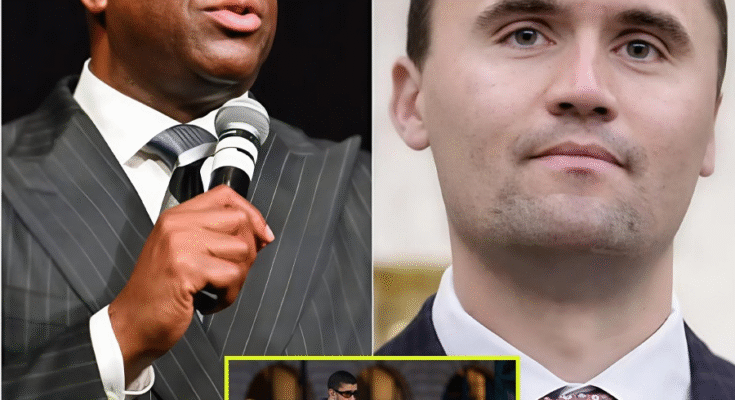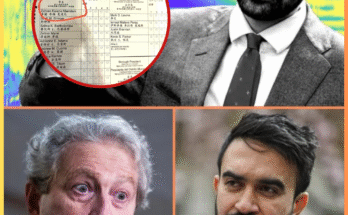The Shadows That Won’t Fade: How One Night in Benghazi Became America’s Most Enduring Political Firestorm
For more than a decade, the events of one September night in Benghazi have refused to fade into the archives of history. They echo through congressional halls, dominate press conferences, and ignite heated discussions in living rooms across America. With new political voices reviving old accusations and unresolved questions still haunting the national memory, Benghazi has transformed from a tragic attack into a symbol of distrust, division, and the search for truth. The story refuses to settle—and perhaps that’s why the country cannot look away.
An Night That Altered the American Political Landscape
The attack on U.S. facilities in Benghazi on September 11, 2012, took the lives of Ambassador Chris Stevens, Sean Smith, Glen Doherty, and Tyrone Woods. In the years since, countless committees, hearings, investigations, and reports have attempted to reconstruct what happened that night—and why.
Official investigations concluded that while mistakes were made in security assessments and initial public messaging, they did not establish criminal intent. Nevertheless, the episode ignited one of the most polarizing debates in modern political history.
For many Americans, Benghazi never felt fully resolved. For others, it became a symbol of political weaponization. And for some, it turned into a rallying cry demanding deeper accountability.
This tension—between official findings, public perception, and political rhetoric—has kept the Benghazi narrative alive long after the smoke cleared.
Why the Story Refuses to Die
In early political cycles after the attack, Benghazi dominated television coverage and congressional hearings. But just when the controversy seemed to fade into the background of history, it resurged again as new political figures revisited the case, raising fresh questions and resurrecting old accusations.
Some lawmakers have used fiery speeches to demand renewed investigations or tougher scrutiny. Others frame their concerns around transparency, decision-making, intelligence failures, or the chain of command that left diplomats vulnerable.
Part of the reason Benghazi still resonates is the emotional weight it carries. Four Americans died serving their country. Families were left devastated. The imagery of chaos, heroism, confusion, and loss seared itself into the national consciousness.
But there’s more: Benghazi became the epicenter of broader debates about government trust, foreign policy judgment, crisis communication, and the handling of sensitive information. To many, the tragedy became a symbol—not just of danger abroad, but of the fragility of truth at home.
The Rise of Accusations—and the Problem of Verification
Over the years, various commentators, politicians, and media personalities have put forward dramatic allegations about hidden motives, secret operations, or covert decisions behind the scenes.
Some claim that weapons transfers, diplomatic missions, or clandestine actions played a role. Others speculate about intelligence disputes, communication breakdowns, or political pressures within the administration at the time.
However, it’s important to emphasize:
None of these more extreme claims have been proven by official investigations.
Congressional committees, bipartisan panels, and military reviews examined the events in detail and did not substantiate the explosive allegations that often spread online.
Yet the persistence of these theories speaks to something deeper:
America’s ongoing struggle with trust, transparency, and the desire for definitive answers in moments of national crisis.
Why People Continue to Ask Questions
Many Americans still feel unsettled. They want to know:
Why was the compound insufficiently protected?
Why were warnings about instability not addressed more forcefully?
Why did early public statements attribute the attack to spontaneous unrest?
Were intelligence assessments misunderstood or mishandled?
Could any actions have changed the outcome?
These questions—some logistical, some emotional—linger because the tragedy touched a nerve at the intersection of patriotism, loss, and government accountability.
When people sense inconsistencies or confusion in official narratives, skepticism grows. And when skepticism grows, theories fill the gaps.
A Symbol Larger Than a Single Event
Benghazi morphed into something greater than a foreign policy crisis. It became:
A political battlefield where rival factions clashed over responsibility.
A cultural lightning rod representing concerns about government openness.
A test case for examining how crises are communicated to the public.
A cautionary tale about the dangers facing American personnel overseas.
At its core, Benghazi endures because it lies at the crossroads of national values: service, sacrifice, truth, and accountability.
The Revival of the Controversy in Modern Politics
The controversy resurfaced once again when newer political voices revisited the topic, using forceful language to call for renewed scrutiny. These speeches often frame Benghazi not just as an event but as the ultimate symbol of “unfinished business” in American government oversight.
Such rhetoric resonates with audiences who feel past investigations left critical questions unanswered—or who distrust institutional conclusions.
Even when these statements include dramatic rhetoric or hyperbole, they tap into real emotional undercurrents: the desire to honor fallen Americans, the belief that leadership must be held accountable, and the fear that history could repeat itself if lessons are not fully learned.
Where the Public Stands Today
Polling and public sentiment reveal a divided nation.
Some believe the matter was thoroughly investigated and should be allowed to rest. Others remain convinced that the full truth has not been revealed.
This divide reflects a broader national struggle with how Americans interpret information, whom they trust, and what they believe government should disclose.
The Danger of Blurring Fact and Theory
One challenge in discussing Benghazi is separating documented events from speculation. Dramatic claims can overshadow the real lessons—lessons about communication breakdowns, crisis response, and diplomatic security.
While open discussion is vital in any democracy, the line between accountability and misinformation must remain clear. Investigations matter. Evidence matters. And tragedies deserve careful examination rather than sensationalism.
Legacy and Lessons
More than ten years later, Benghazi continues to shape debates about:
Embassy security protocols
Military response capabilities
Intelligence coordination
Public communication during crises
Political trust and transparency
The role of oversight in democracy
For families of the fallen, the legacy is personal and painful. For lawmakers, it remains a cautionary reminder of the weight of decision-making. For citizens, it symbolizes the ongoing struggle between truth-seeking and political narrative.
Why This Story Will Continue
As long as the U.S. faces threats abroad and political conflict at home, Benghazi will remain part of national discourse.
It represents unresolved emotion more than unresolved evidence. It’s a case study in how a single night can reshape political culture for decades. And it stands as a reminder that, in moments of crisis, clarity is essential—because without it, shadows linger far longer than the events that cast them.



